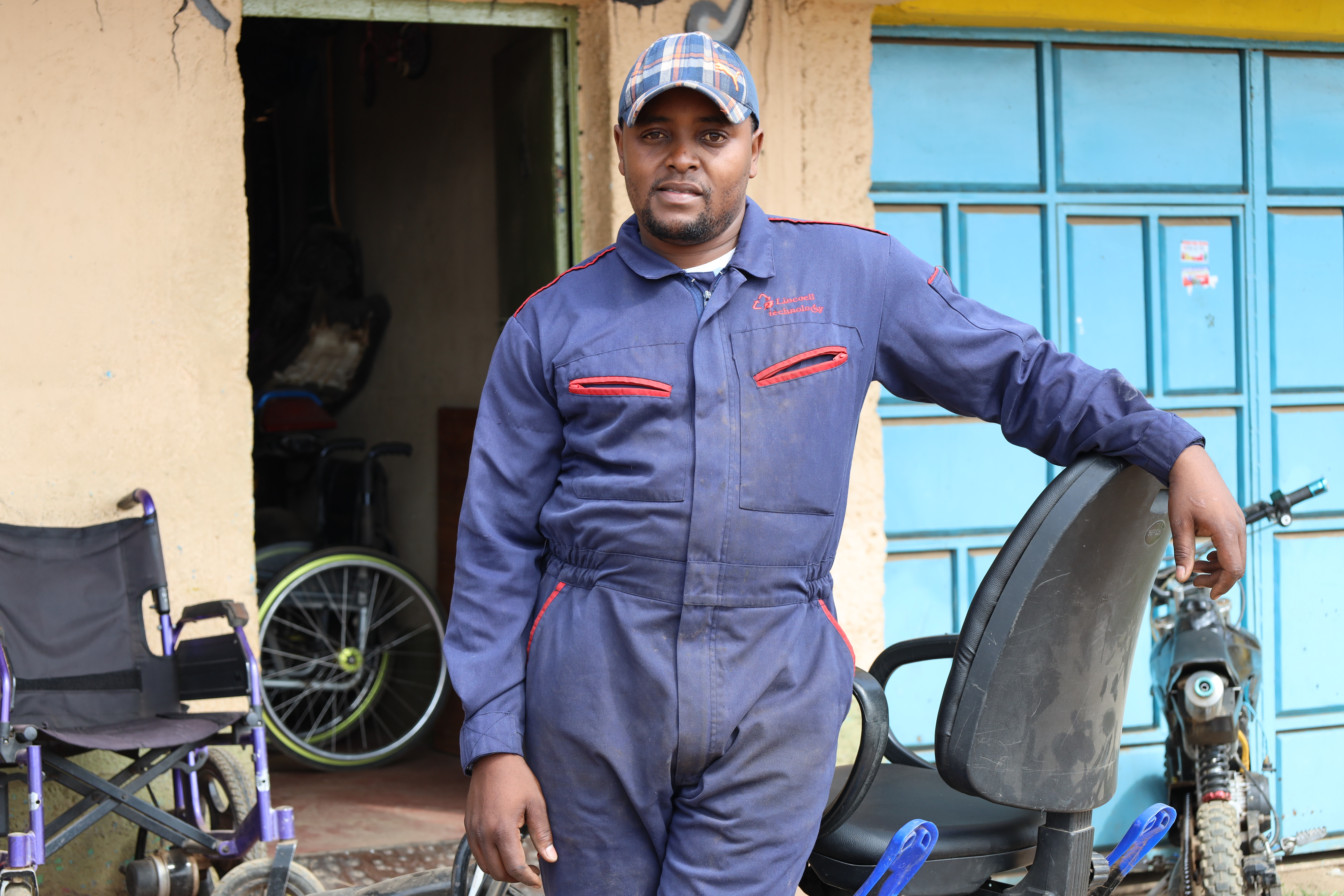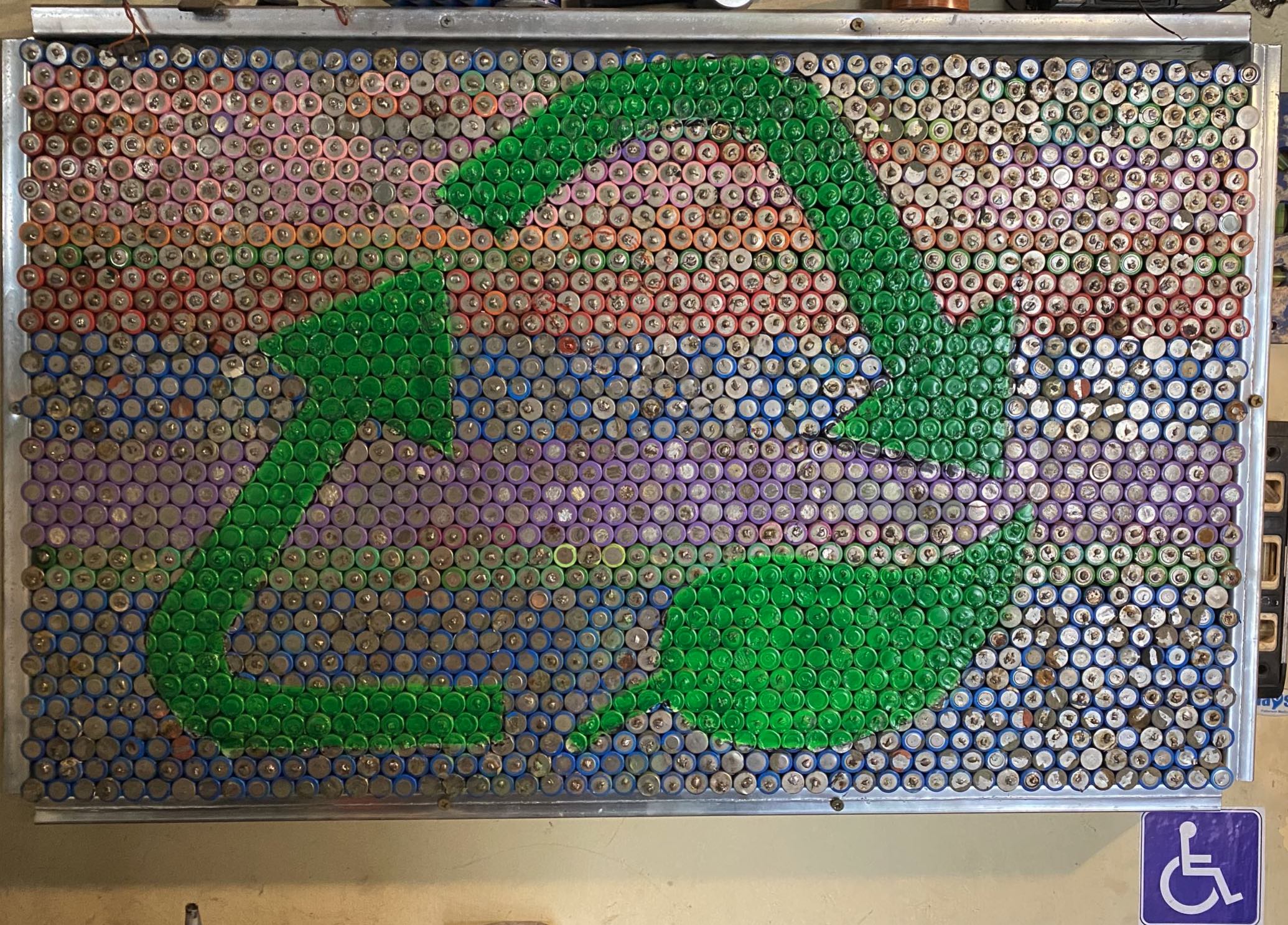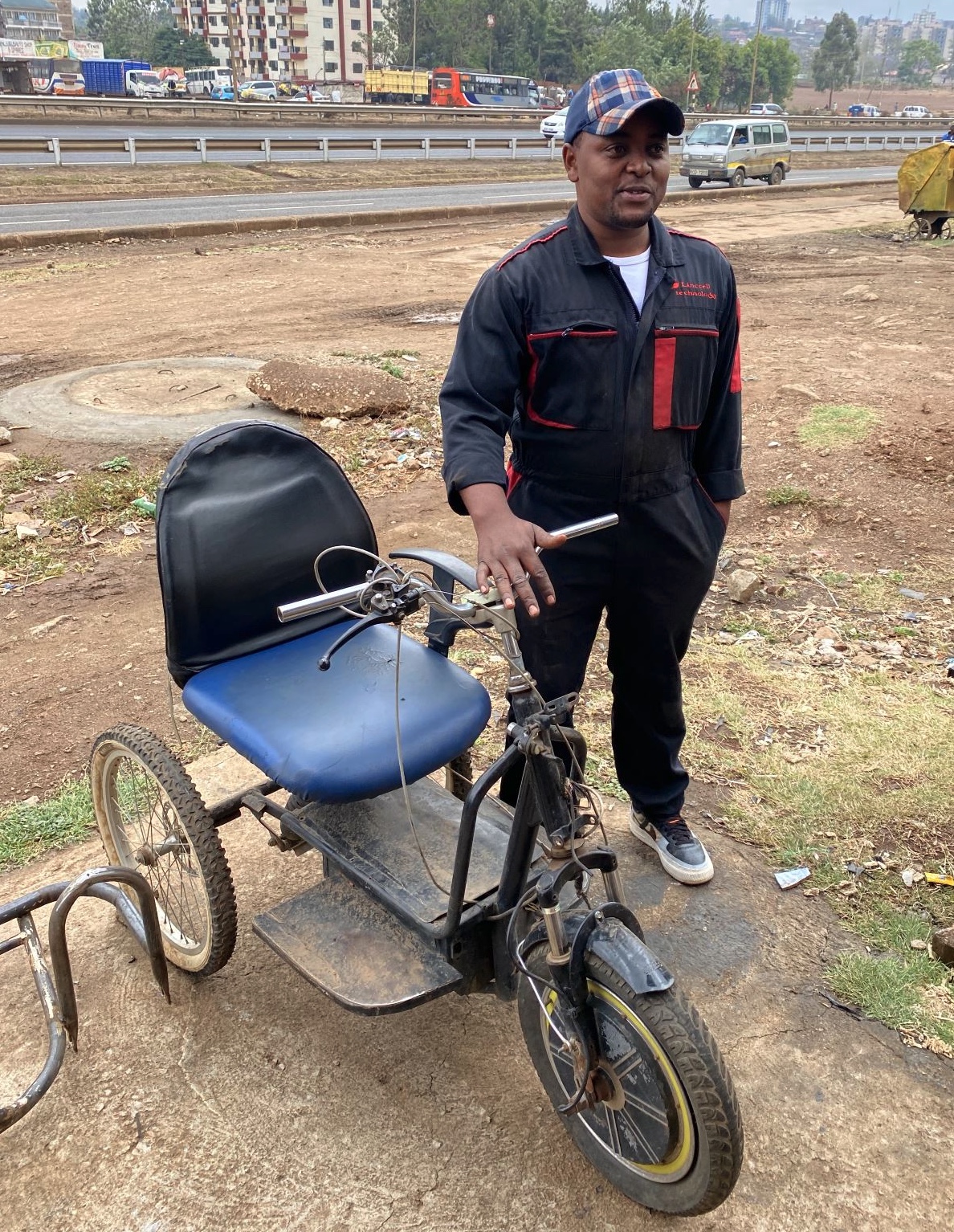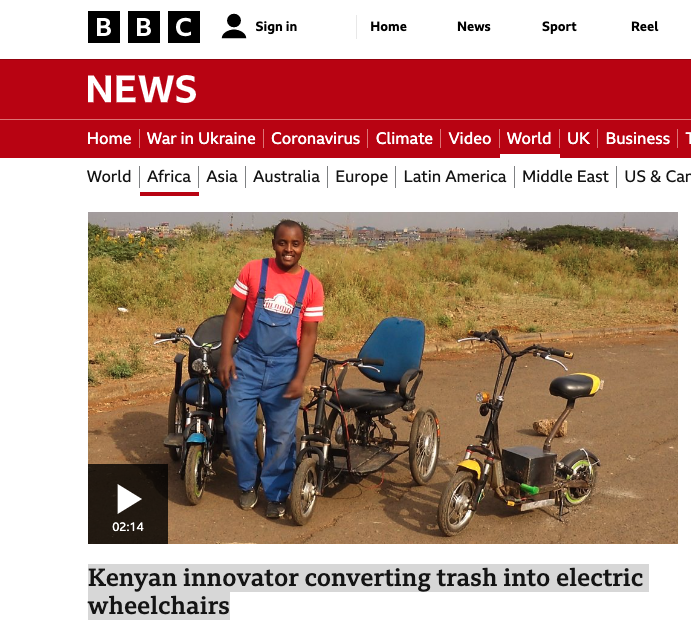From Junk to Wheelchairs: The Story of Lincoln Wamae – an engineer and innovator

Lincon Wamae standing outside his workshop
Lincoln Wamae is a Kenyan inventor and engineer who has made it his mission to improve the lives of people with disabilities through the power of innovation. Using his skills in mechatronics and electrical engineering, Wamae has developed a range of electric wheelchairs that are not only functional and reliable but also environmentally friendly. In 2018, he founded LincCell Technology, which is the first company in Kenya and Africa to manufacture electric wheelchairs from recycled parts with long-range lithium-ion batteries.
Wamae's journey as an inventor began in his hometown of Githurai, a suburb of Nairobi. Growing up, he was fascinated by the many scraps of electronic waste that littered the streets and alleys of his neighbourhood. He began to collect these discarded items and use them to build simple machines and gadgets.
One day, while watching a disabled man struggle to navigate the rough, potholed roads of Githurai, Wamae had an idea. Why not use his skills to build a better wheelchair for people with disabilities? He began to experiment with different designs and materials, using the e-waste he had collected as raw materials.

Art made of e-waste batteries hanging at Lincon's workshop
The result of his efforts was the "Rough Road Electric Wheelchair," a sturdy and reliable chair that can navigate even the most challenging terrain. The Rough Road Electric Wheelchair is built from discarded materials such as e-waste from old cars and other machines, parts from old bicycles and other scrap materials, making it an environmentally friendly solution for mobility.
In 2020, Lincoln Wamae's journey as an inventor and entrepreneur took a significant leap forward when he became a part of the first cohort of Global Disability Innovation (GDI) Hub’s Innovate Now accelerator program. The program provided him with training on business development, design thinking, and financial management, as well as mentorship from industry experts, to help him turn his innovation into a successful business.
One of the key aspects of the Innovate Now program is the Innovate Now Live Labs network, where entrepreneurs like Wamae take their products to direct users to test them. This unique aspect of the program is designed to validate ideas and products. During the virtual Demo Day, the finalists, including Wamae, demonstrated Rapid Assistive Technology testing and feedback, showcasing dynamic community-based solutions to global challenges. The users of the innovations were at the heart of the product and service development.
Innovate Now, which is powered by GDI Hub enables finalists to undergo an intensive 6-month acceleration program, where the founders gain exposure to international investors and opportunities to co-design and test their products with persons with disabilities. The Innovate Now Live Labs network is key to validate ideas and products. During the virtual Demo Day, Wamae's Rough Road Electric Wheelchair was able to demonstrate its ability to navigate rough terrain and improve the mobility of people with disabilities.

Lincon standing next to his first electric wheelchair prototype.
Currently, LincCell Technology has 3 full-time employees and has had 75 customers to date. In the process, they have raised USD 10,000 in funds. Wamae's mission is not just to build wheelchairs, but to educate people on how to build their own wheelchairs, especially for people living in rural areas who can't afford to buy wheelchairs. He has been educating people on how to build wheelchairs through YouTube videos, which have been extremely helpful to many people.
"My next goal is to create a solar powered wheelchair which will help users go for longer periods without charging." Says Lincon.
Wamae's invention of the Rough Road Electric Wheelchair is a perfect example of how to turn a problem into a solution. By repurposing e-waste and scrap materials, he has not only built a functional and reliable wheelchair, but also helped to reduce the amount of electronic waste in the environment. His mission to educate people on how to build their own wheelchairs is not only helping people with disabilities, but also empowering people.
Below is a story by BBC Africa on Lincel Technologies.
A news story of Lincon Wamae on BBC Africa.
